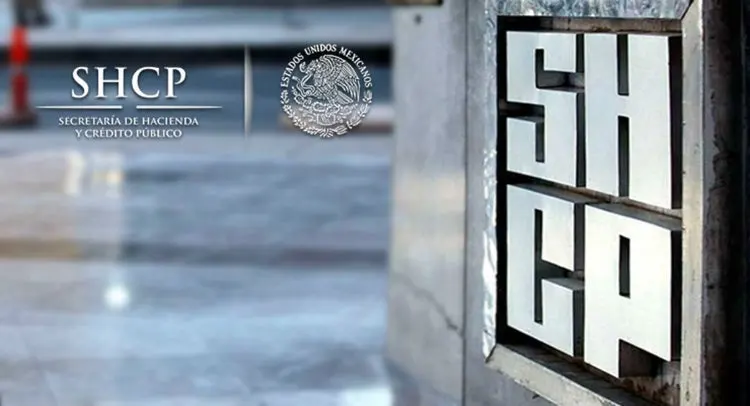
Mexican Anti-Money Laundering Law
Today we’re going to talk about the Mexican Anti-Money Laundering Law.
The President of Mexico sent the bill of the Federal Law for Prevention and Identification of Transactions Involving Funds from Illegal Activities and used to Finance Terrorism (Mexican Anti Money Laundering Law). The bill is now effective as of Sep. 1, 2013
This bill was designed as a strategy to combat organized crime in Mexico, and is based on two guiding principles:(I) to set up an inter-institutional organizational structure to share information in order to detect transactions involving funds deriving from unlawful activities, and (ii) to enact required amendments to, and expansion of, the applicable legal framework.
Mexican Anti-Money Laundering Law
The purpose of this law is that of establishing new measures and procedures to prevent and detect acts or transactions carried out with funds obtained from illicit activities, which will be applicable to many sectors of the economy that are not currently considered to be part of the financial system.
Thus bringing into the fold financial brokers and some professionals – Notaries Public, public commercial attesters’, metals brokers, among others – to assist in the prevention and detection of this criminal activity, who will be under the obligation of reporting any vulnerable activities in which they engage as well as any transactions which their customers may carry out with illegal funds.
Sanctions for failing to comply with the law are: monetary, ranging from 12,000 to up to 4 million pesos, the revocation of permits when involving raffles and lotteries, disqualification of public commercial attesters’, specific sanctions in the case of public notaries and even prison terms ranging from 2 to 8 years.
The Ministry of Finance and Public Credit (Spanish acronym SHCP) shall be in charge of its application, and the Mexican Office of the Attorney General will set up a special entity in charge of conducting the financial and accounting review of illicit fund transactions to be known by the name Unidad Specialized en Analysis Financiero en Contra de la Delincuencia Organizada (Anti-Organized Crime Financial Review Special Unit). The SHCP (The equivalent of USA -IRS) shall inform the Office of the Public Federal Prosecutor of any act or transaction undertaken by financial entities that may entail a federal crime, for the latter to proceed as required.
1. FINANCIAL ENTITIES
The bill and the specific laws governing financial entities establish certain obligations to be complied with by financial entities, to with:
a) they must take proper measures and establish procedures to prevent and detect any acts, omissions or transactions that may involve money-laundering activity.
b) Submit to the SHCP, through the proper federal regulatory agencies authorized to oversee compliance with the above-mentioned obligations, reports on any vulnerable activities in which they engage in the event they suspect that any
actions, transactions, or services provided to their clients and users, or any actions undertaken by their board members, top executives, officers, employees, and legal representatives may involve money-laundering activity.
c) Deliver all information and documentation relating to the actions, transactions, and services mentioned above to the SHCP. ( IRS)
d) Preserve all information and documentation regarding the identity of their current or former clients and users, as well as the information relating to all actions, transactions, and services reported as set forth above for ten years, without prejudice to any of the provisions of all other applicable laws and regulations.
2. VULNERABLE ACTIVITIES
The bill defines the term “vulnerable activities” as those which give rise to the obligation of identifying the client, the client’s business or professional activity, obtaining information on the beneficiary of the transaction, preserving the relevant documentation, and facilitating review by the authorities of the information relating to such activity, and finally, to the obligation of reporting the activity to the SHCP once a certain threshold is
reached.
These are described below:
1. Those relating to gaming activities, games and contests, meets or lotteries, and raffles conducted by decentralized entities, when a threshold of 20,000 pesos is reached on the sale of the tickets, chips, or similar vouchers used to conduct any of the former activities, or generally when the amount of the prizes to be paid on any of the former activities exceeds such threshold or when any related financial transaction, carried out singly or as a series of apparently related transactions is equal to or exceeds such amount. Acts or transactions in amounts equal to or in excess of 40,000 pesos must be reported.
2. Habitual business or professional activities involving the issuance or marketing of service, credit, prepaid cards, and all stored value cards that are not issued or marketed by banking institutions provided that: the issuer or business entity marketing them maintains a business relationship with the person who acquires them, the instruments allow for the transfer of funds, or when they are marketed from time to time. In regard to service or credit cards, when the aggregate monthly expenses charged to the account is equal to or exceeds fifty thousand pesos.
For pre-paid cards, when they are marketed for an amount equal to or greater than 40,000 pesos per transaction.
All other stored value instruments shall be governed by the regulations issued under this statute.
Transactions must be reported when the aggregate monthly amount charged to the card is equal to or exceeds 80,000 pesos. In the case of pre-paid cards, when they are marketed for amounts equal to or greater than 40,000 pesos.
3. Habitual business or professional activities involving the issuance and marketing of travelers’ checks by entities other than financial institutions. Transactions for amounts equal to or in excess of 40,000 pesos must be reported.
4. Habitual business or professional activities involving the granting of secured or unsecured credit and loans, and acting as surety in transactions of this kind, by persons or entities other than financial entities. Transactions involving amounts
equal to or greater than 100,000 pesos must be reported.
5. Habitual business or professional activities involving the construction or real-estate development activities or activities involving intermediation in title conveyance or the creation of liens and encumbrances over real-estate, involving purchase and sale transactions of property of this kind on behalf of or for clients, of the entities rendering such services. Transactions for amounts equal to or in excess of 500,000 pesos must be reported.

6. Habitual business or professional activities involving the marketing and brokerage of precious metals, gems, jewelry, or watches, when involving the purchase and sale of these goods in acts or transactions for amounts equal to or greater than
50,000 pesos. An exception is made on transactions of this kind in which the Mexican central bank is involved. Cash transactions with a client equal to or greater than 100,000 pesos must be reported.
7. Habitual business or professional activities involving the sale at auction or marketing of works of art, involving purchase and sale transactions in amounts equal to or greater than 150,000 pesos. Transactions equal to or in excess of
300,000 pesos must be reported.
8. Habitual business or professional activities involving the marketing of and dealership in new and used motor vehicles, aircraft or maritime vessels with a value equal to or greater than 200,000 pesos. Transactions in amounts greater than 400,000 pesos must be reported.
9. Habitual business or professional activities involving the provision of armoring services for new and used land vehicles and armored protection for premises in amounts equal to or in excess of 150,000 pesos. Transactions in excess of 300,000 must be reported.
10. Habitual business or professional activities involving the transportation and custody of cash and valuables in transit, an exception made of those carried out by the Mexican central bank and securities depositary institutions. When the amount involved is equal to or greater than 200,000 pesos the transaction must be reported.
11. The rendering of independent professional services, when there is no labor relationship with the client, in preparing for or involving acting in the name and on behalf of a client, in any of the following transactions:
a) The purchase and sale of, or assignment of rights over, real estate;
b) The management of financial resources, securities, or any other of the client’s assets;
c) The handling and management of bank, savings, or securities investment accounts;
d) The organization of capital contributions or any other type of financial resources to incorporate, operate, and manage commercial companies; or
e) The incorporation, spin-off, merger, operation, and management of legal entities or corporate vehicles, including trusts and the acquisition and sale of commercial companies. The service provider must report any financial transaction relating to the foregoing activities if it is acting in the name and on behalf of the client.
12. The rendering of Notarial services by notaries at law or other public attesters’, as follows:
A. Activities carried out by notaries public:
a) The purchase and sale of real estate or the creation or the transfer of rights in rem over this type of property.
b) The granting of irrevocable powers of attorney for acts of administration and ownership.
c) The incorporation, change in ownership structure, merger, or a spin-off of all kinds of legal entities, and the acquisition of stock and ownership interests of such entities.
d) The creation of or amendments to guarantee trusts and transfer of title trust deeds relating to real estate, except for those created to guarantee loans granted by banking institutions or public housing agencies.
e) The granting of secured and unsecured loans and credits when the creditor is not
a banking or financial institution, nor a public housing agency. B. Activities carried out by public commercial attesters’:
a) Appraisals of property with a value equal to or in excess of 500,000 pesos.
b) The incorporation, change in ownership interests, merger or spin-off of all kinds of business entities, and the acquisition and sale of stock or ownership interests of such entities.
c) The creation of trusts, amendments to and assignment of rights under trusts deeds.
d) The granting of business loans or credits where the creditor is not part of the banking and financial system.
13. The reception of donations by non-profit legal entities in amounts equal to or exceeding 100,000 pesos. Donations must be reported once they reach the 200,000 peso threshold.
14. The services rendered by customs brokers or special customs clearance agents under authorization granted by the SHCP to act on behalf of another to have the goods listed below cleared through customs under the different customs regimes provided in the Mexican customs law:
- A) New and used land vehicles, aircraft, and vessels, whatever their value;
- B) New and used gaming and lottery ticket vending machines, whatever their value;
- C) Equipment and materials used in the production of cards to effect payment, whatever the value of the goods.
- D) Jewelry, watches, gems, and precious metals when the value of each individual item is equal to or exceeds 485 times the daily minimum wage in the Distrito Federal.
- E) Works of art, when the value of each individual item is equal to or exceeds 4815 times the daily minimum wage in the Distrito Federal.
- F) Armoring materials for armored vehicles, whatever their value.
15. The lease of real estate when the monthly rental amount exceeds 100,000 pesos on the day payment is made or the obligation is satisfied.

3. REPORTING TO THE SHCP
Reports must include the following information:
(I) General ID data on the person engaging
In the vulnerable activity; (ii) general ID data on a client, users, or controlling beneficiary and
(iii) A description of the vulnerable activity being reported.
The reported information and supporting documentation as well as the identity of the reporting individual or entity and that of their representatives (in the case of legal entities) shall be considered secret and confidential as provided by the Federal Law of Transparency and Access to Governmental Public Information and shall be used exclusively in the prevention, detection and combating money-laundering activities and all related criminal activity.
4. GENERAL OBLIGATIONS
The following are obligations binding on those who engage in vulnerable activities:
1. To identify the clients and users with whom such activities are carried out and check their identity by requiring that they show official credentials and ID documents, and photocopy such documents.
2. Obtain information on the client’s business activities or occupation only in the event a formal and day-to-day relation is established, precluding occasional acts or transactions.
3. Request the client or user that engages in vulnerable activities to provide information when becoming aware of the existence of any person(s) who is (are) the actual beneficiaries thereof or who has (have) control over the legal entities with whom it engages in vulnerable activities and, if found to be warranted, to request the client or user to show official ID of such person(s) if in his/her possession, otherwise, to state that he does not have it.
4. To keep in custody, protect, safeguard, and prevent the destruction or concealment of the vulnerable activity supporting information and documentation as well as of that used to identify its clients and users.
This information and documents shall be kept for five years counted as of the initial date of the vulnerable activity.
5. Facilítate inspection visits.
6. Submit timely reports to the SHCP complying with all formalities required by law. There are different requirements for individuals and legal entities.
If the person who engages in the vulnerable activity is a legal entity, it must appoint the person who will be responsible for certifying compliance with its obligations before the SHCP, this person having to be a member of the top management.
The management body will be responsible for doing so until such an appointment is made. Individuals are required to comply with these obligations directly and personally.
Moreover, the bill provides that those who engage in vulnerable activities shall refuse to carry out the relevant transaction, without incurring on liability, should their clients or users fail to provide the information or documents mentioned above as required to enable them to meet their obligations.
5. PROHIBITIONS
Settlements in cash, whether in paper bills and/or coinage, in Mexican and/or foreign currencies, or with precious metals is prohibited in the following instances:
- a) On the transfer of title or the creation of rights of any kind over stock certificates or certificates evidencing ownership interests in legal entities having a value in excess of 200,000 pesos on the date payment is made or the obligation is settled.
- b) The creation or assignment of rights in rem on real estate involving an amount equal to or greater than $500,000.00 pesos on the date payment is made or the obligation is settled.
- c) The acquisition of tickets allowing participation in gambling activities, lotteries, and raffles, as well as the delivery or payment for prizes on such gaming activities, lotteries, and raffles in an amount greater than 200,000 pesos on the day payment is made or the obligation is settled.
- d) On the transfer of title or creation of rights in rem on new or used land vehicles,
aircraft or maritime vessels in an amount equal to or greater than 400,000 pesos, on the day payment is made or the obligation is settled. - e) For the rendering of armoring services for any of the vehicles, aircraft, or vessels mentioned in the preceding paragraph or else for the installation of armored protection on immovable property in an amount greater than 200,000 pesos on the day payment is made or the obligation is settled.
- f) On the transfer of title over watches, jewelry, precious metals, and gems, either of individual items or lots and over works of art, in an amount equal to or greater than 300,000 pesos on the day payment is made or the obligation is settled.
- g) Leases of any of the property referred to in items b, d, and e, in an amount greater than 200,000 pesos on the day payment is made or the obligation is settled.
If you have any questions on the Mexican Anti-Money Laundering Law or other legal matters, please talk to one of our recommended attorneys.



